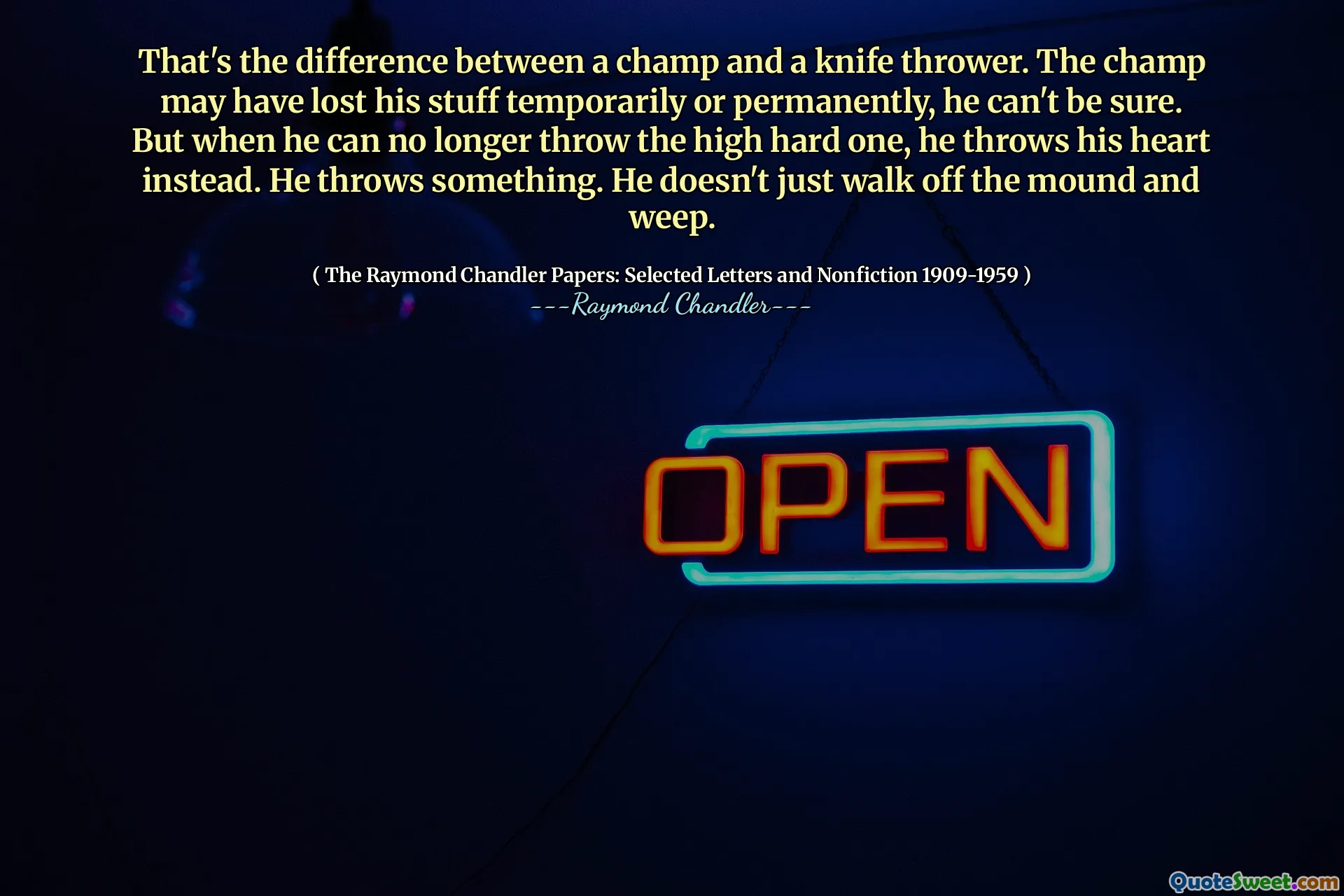
That's the difference between a champ and a knife thrower. The champ may have lost his stuff temporarily or permanently, he can't be sure. But when he can no longer throw the high hard one, he throws his heart instead. He throws something. He doesn't just walk off the mound and weep.
This quote highlights the resilience and inner strength that distinguish true champions from others. It emphasizes that setbacks and failures are universal, but how one responds to them defines their character. A champion, even in moments of weakness or failure, chooses to put forth their heart — their passion, determination, and spirit. Instead of succumbing to defeat or walking away in despair, they find another way to participate, to contribute, and to persevere. The metaphor of the mound and the high hard one, common in baseball, symbolizes giving one's best effort, even if that effort is temporarily hindered. When the physical ability or skill wanes, the champion demonstrates that effort is not solely about raw talent; it is about spirit. By 'throwing his heart,' he reconfirms his commitment, turning adversity into an act of courage and resilience. This attitude is universally admirable and applicable across various domains of life. It serves as a reminder that failure is inevitable, but surrender is optional. True strength may be measured not by the absence of setbacks but by the ability to respond with integrity and passion. The metaphor extends beyond sports to encompass life's personal and professional struggles, emphasizing the importance of perseverance, attitude, and heart in overcoming challenges. Ultimately, it tells us that confronting failure with resilience and inner strength is what truly makes someone a champion.






